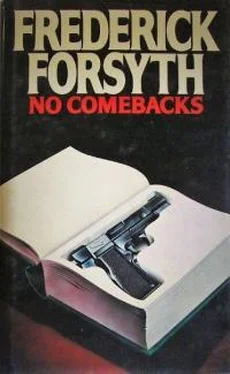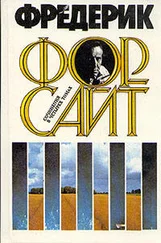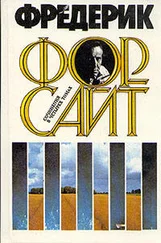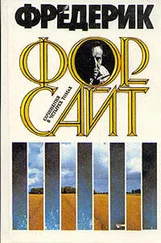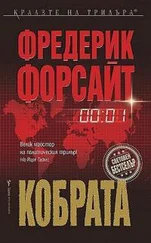He liked the job; he got satisfaction from it, despite the poor pay and the long hours. But every job has its tasks that no one can enjoy, and this morning had brought one of them. An eviction.
For two years, the Dublin city council had been steadily demolishing the rash of tiny, back-to-back, one room up and one room down houses that formed the area known as the Gloucester Diamond.
Why it had ever been called that was a mystery. It had none of the wealth and privilege of the English royal house of Gloucester, nor any of the expensive brilliance of the diamond. Just an industrial slum lying behind the dockland zone on the north shore of the Liffey. Now most of it was flat, its dwellers rehoused in cubic council apartment blocks whose soul-numbing shapes could be seen half a mile away through the drizzle.
But it lay in the heart of Bill Hanley's precinct, so this morning's business was his responsibility, much as he hated it.
The scene between the twin chains of crowd barriers that cordoned the centre section of what had once been Mayo Eoad was as bleak that morning as the November weather. One side of the street was just a field of rubble, where soon the earth-movers would be at work, gouging out fresh foundations for the new shopping complex. The other side was the centre of attention. Up and down for hundreds of feet not a building stood. The whole area was flat as a pancake, the rain gleaming off the slick black tarmac of the new two-acre car park destined to house the vehicles of those who would one day work in the intended office blocks nearby. The entire two acres was fenced off by a 9-foot-high chain-link fence; that is to say, almost the whole two acres.
Right in the centre, facing onto Mayo Road, was one single remaining house, like an old broken stump of tooth in a nice smooth gum. Either side of it the houses had been torn down, and each side of the remaining home was propped up with thick timber beams. All the houses that had once backed onto the sole survivor had also gone and the tarmac tide lapped round the house on three sides like the sea round a lone sandcastle on the beach. It was this house and the frightened old man who sheltered within it that were to be the centre of the morning's action; the focus of entertainment for the expectant groups from the new apartment blocks, who had come to see the last of their former neighbours being evicted.
Bill Hanley walked forward to where, directly opposite the front gate of the lone house, stood the main group of officials. They were all staring at the hovel as if, now that the-moment had finally come, they did not know how to go about it. There was not much to look at. Fronting the pavement was a low brick wall, separating pavement and what purported to be the front garden: no garden at all, just a few feet of tangled weeds. The front door stood to one side of the house, chipped and dented by the numerous stones that had been flung at it. Hanley knew that behind the door would be a yard-square lobby and straight ahead the narrow stairs that led up. To the right of the lobby would be the door to the single sitting room, whose broken, cardboard-stuffed windows flanked the door. Between the two was the passage running to the small, filthy kitchen and the door leading to the yard and the outside privy. The sitting room would have a tiny fireplace, for the chimney running up the side of the house still jutted to the weeping sky. Behind the house, Hanley had seen from the side view, was a back yard wide as the width of the house and 25 feet long. The yard was fringed by a 6-foot-high timber plank fence. Inside the yard, so Hanley had been told by those who had peered over the fence, the bare earth was slick with the droppings of the four speckled hens the old man kept in a hutch at the foot of the yard, up against the back fence. And that was it.
The city council had done its best for the old man. There had been offers of rehousing in a bright, clean, new council flat; even a small house of his own somewhere else. There had been social workers, and relief workers, and church workers round to see him. They had reasoned and cajoled; given him deadline after deadline. He had refused to move. The street had come down around him and behind him and in front of him. He would not go. The work had gone on; the car park had been levelled and paved and fenced on three sides of him. Still the old man would not shift.
The local press had had quite a field day with the 'Hermit of Mayo Road'. So had the local kids, who had pelted the house with rocks and mud balls, breaking most of the windows while the old man, to their intense delight, shouted obscenities at them through the shattered panes.
Finally, the city council had issued its eviction notice, the magistrate had given permission for forcible removal of the occupant, and the might of the city had ranged itself before the front door on a wet November morning.
The chief housing officer greeted Hanley. 'Unpleasant business,' he said. 'Always is. Hate these evictions.'
'Aye,' said Hanley, and scanned the group. There were the two bailiffs who would do the job, big, burly men looking embarrassed. Two more from the council, two of Hanley's own policemen, someone from Health and Welfare, a local doctor, an assortment of minor officialdom. Barney Kelleher, the veteran photographer from the local newspaper, was there with a beardless young cub reporter in tow. Hanley had good relations with the local press and a friendly if guarded relationship with its older servants. They both had jobs to do; no need to make a guerrilla war out of it. Barney winked; Hanley nodded back. The cub took this as a sign of intimacy.
'Will you be bringing him out by force?' he asked brightly.
Barney Kelleher shot him a look of venom. Hanley swivelled his grey eyes to the sprog and held the gaze until the young man wished he had not spoken.
'We will be as gentle as we can,' he said gravely. The sprog scribbled furiously, more for something to do than because he could not remember such a short sentence.
The magistrate's order specified nine o'clock. It was two minutes past nine. Hanley nodded to the chief housing officer.
'Proceed,' he said.
The council officer approached the door of the house and knocked loudly. There was no answer.
'Are you there, Mr Larkin?' he called. No answer. The official looked back at Hanley. Hanley nodded. Clearing his throat, the official read out the eviction order in a voice loud enough to be heard inside the house. There was no answer. He stepped back to the group in the road.
'Will we give him five minutes?' he asked.
'Very well,' said Hanley. Behind the crush barrier a murmur started among the growing crowd of former dwellers in the Gloucester Diamond. Finally one at the back became bolder.
'Leave him alone,' called the voice. 'Poor old man.'
Hanley strolled leisurely over to the barrier. Without haste he walked down the line of faces, staring into the eyes of each. Most looked away; all fell silent.
'Is it sympathy you'd be giving him?' asked Hanley softly. 'Was it sympathy that broke all his windows last winter and himself freezing in there? Was it sympathy that had him pelted with stones and muck?' There was a long silence. 'Hold your hour,' said Hanley and walked back to the group by the front door. There was silence behind the barrier. Hanley nodded to the two bailiffs who were staring at him.
'On you go,' he said.
Both men had crowbars. One walked round the side of the house, between the chain-link fence and the corner of the brickwork. With skilled ease, he prised loose three of the fence planks and entered the back yard. He walked to the back door and rapped at it with his bar. When his colleague at the front heard the sound, he rapped at the front. There was no reply to either. The man at the front inserted the tip of the crowbar between the door and side post and had it open in a trice. The door yielded 3 inches and stopped. There was furniture behind it. The bailiff shook his head sadly and, turning to the other edge of the door, whisked off both hinges. Then he picked up the door and laid it in the front garden. Piece by piece, he removed the pile of chairs and tables in the hallway until the space was clear. Finally he entered the lobby calling, 'Mr Larkin?' From the back there was a splintering sound as his friend entered through the kitchen.
Читать дальше
